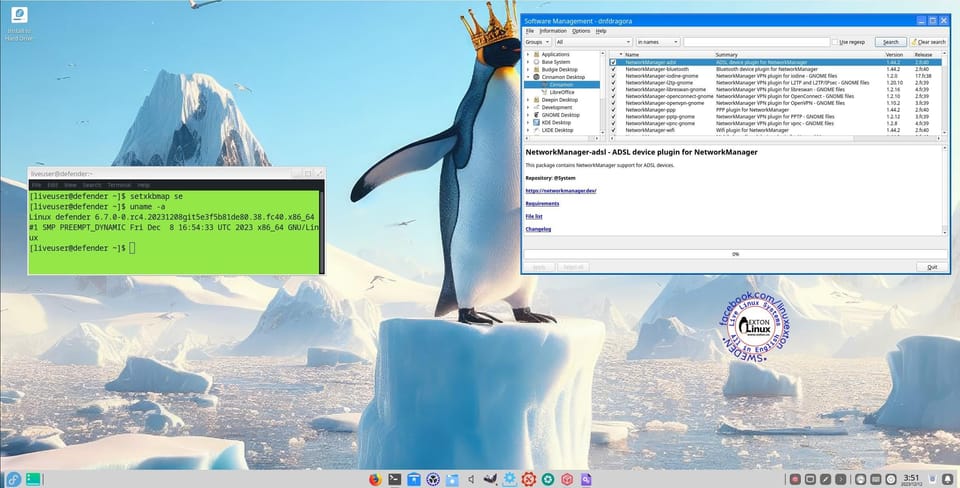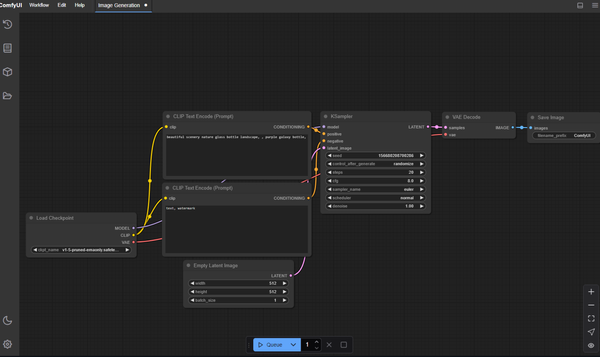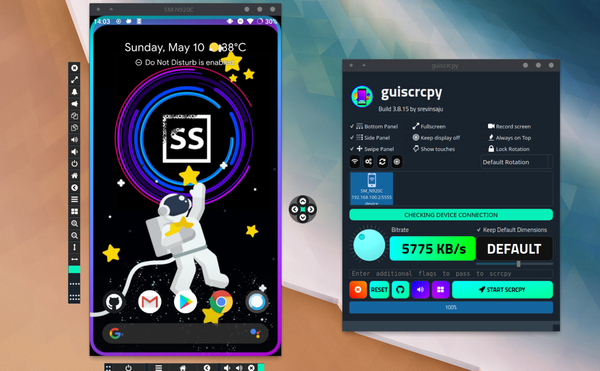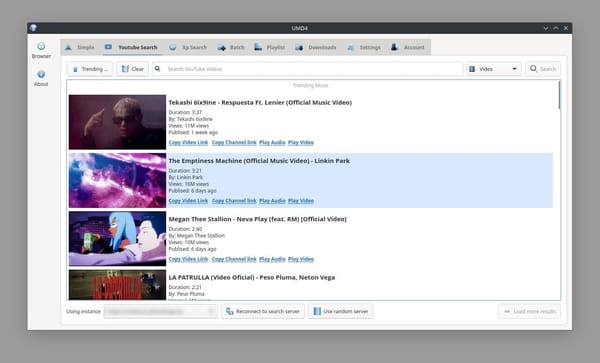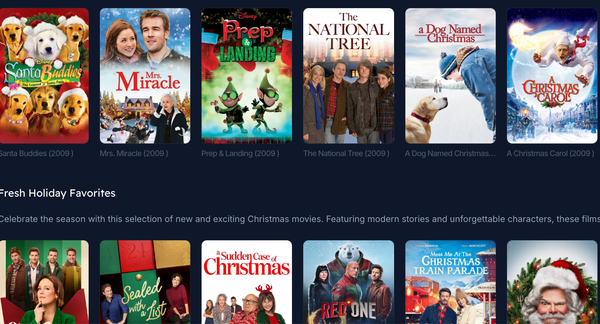Recover Your System with These 17 Free Bootable USB and CD Rescue Systems
Table of Content
Bootable USB Rescue Systems are portable operating systems that can be loaded onto a USB drive and used to troubleshoot or recover data from a computer. They are designed to provide a lightweight and self-contained environment that can be booted directly from the USB drive, bypassing the need to access the computer's internal storage.
Some benefits of using Bootable USB Rescue Systems include:
- Portability: USB drives are small and easy to carry, making it convenient to have a rescue system with you at all times.
- Compatibility: Bootable USB Rescue Systems are typically compatible with a wide range of computer hardware, allowing you to use them on different machines.
- Independent from the host system: Since they run from the USB drive, they do not depend on the host computer's operating system or configuration.
- Data recovery: Bootable USB Rescue Systems often include tools and utilities for recovering lost or deleted data from damaged or inaccessible drives.
- System repair: They can also be used to diagnose and repair issues with the host system, such as fixing boot problems or removing malware.
Some common use cases for Bootable USB Rescue Systems include:
- Data backup and recovery: When a computer fails to boot or access its files, a bootable USB rescue system can help recover important data before attempting any repairs.
- Virus and malware removal: Bootable USB Rescue Systems often come with antivirus and anti-malware tools that can be used to scan and clean infected systems.
- System diagnostics and troubleshooting: These systems provide a set of diagnostic tools that can help identify and resolve hardware or software issues on a computer.
- System maintenance and optimization: Bootable USB Rescue Systems may include utilities for disk partitioning, disk cloning, system benchmarking, and other maintenance tasks.
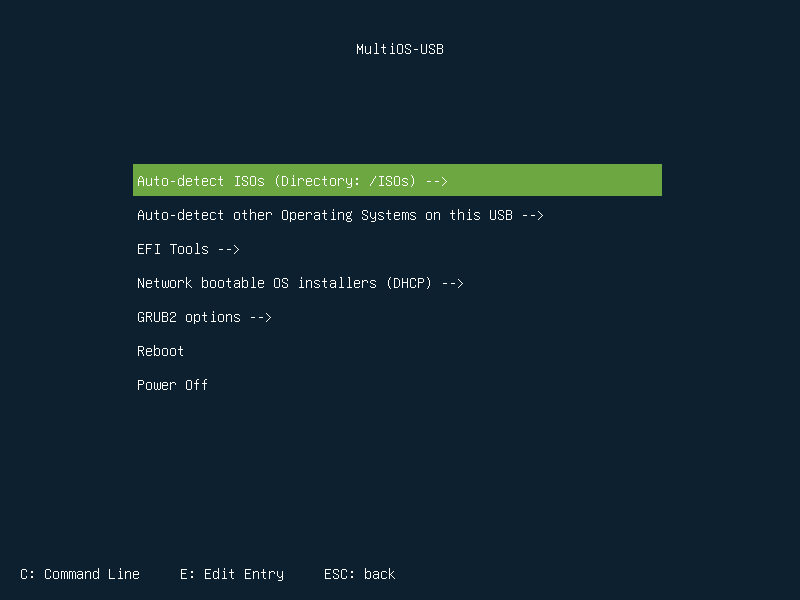
Overall, Bootable USB Rescue Systems are valuable tools for IT professionals, system administrators, and individuals who want to have a reliable and portable solution for computer troubleshooting and data recovery.
1- SystemRescue
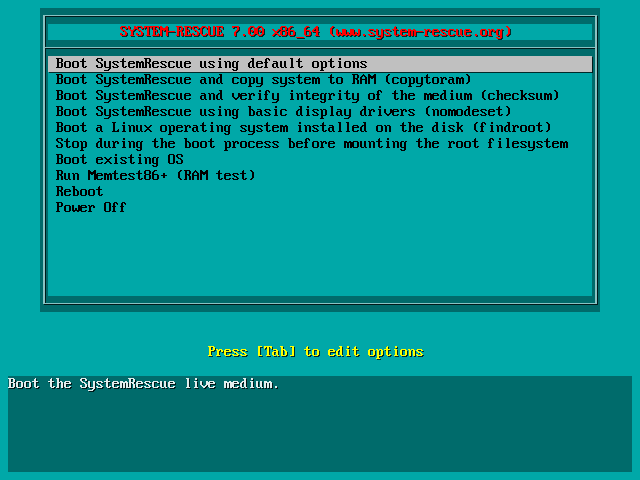
SystemRescue is a Linux system rescue disk that can be booted from a CD-ROM, USB stick, or network. It provides tools for administering and repairing systems, including disk management, network administration, and text editing.
It supports both Linux and Windows computers, and can be used on desktops and servers. It requires no installation but can be installed on the hard disk. It includes up-to-date kernels and supports various file systems and network filesystems.
Pros:
- Comprehensive toolset: SystemRescueCD provides a wide range of tools and utilities for system rescue, data recovery, disk management, and system repair.
- Easy to use: It offers a user-friendly interface that allows users to navigate and access the available tools with ease.
- Regular updates: SystemRescueCD is actively maintained and regularly updated, ensuring compatibility with new hardware and software.
- Documentation and community support: It has extensive documentation and an active user community, making it easier to find help and guidance.
Cons:
- Limited boot options: SystemRescueCD primarily supports booting from CD or USB, which may not be suitable for all systems.
- Command-line interface: While it provides a user-friendly interface, some tools and tasks may require the use of a command-line interface, which can be intimidating for less experienced users.
- Reliance on external resources: SystemRescueCD may require internet access to download additional tools or updates, which may not be available in all situations.
2- Hiren's BootCD
Hiren’s BootCD PE is a restored edition of Hiren’s BootCD based on Windows 10 PE x64. It contains a selection of free and legal tools to fix computer problems, supports UEFI booting, and requires a minimum of 2 GB RAM.
The PE version also attempts to install drivers for graphics, sound, wireless, and ethernet cards, with the option to request additional drivers for unrecognized hardware.
Pros:
- Wide range of tools: Hiren's BootCD offers a vast collection of tools and utilities for system recovery, disk management, data backup and recovery, and more.
- User-friendly interface: It provides a straightforward interface that allows users to easily navigate and access the available tools.
- Boot options: Hiren's BootCD supports booting from both CD/DVD and USB, providing flexibility for different systems.
- Offline functionality: Most tools and utilities included in Hiren's BootCD can be used offline, without the need for internet access.
Cons:
- Outdated: Hiren's BootCD has not been actively updated for several years, which means it may not be compatible with newer hardware and software.
- Limited support: Due to its discontinued development, there may be limited official support available for Hiren's BootCD.
- Legal concerns: Some tools included in Hiren's BootCD may have licensing or legal restrictions, so it's important to review and understand the terms and conditions.
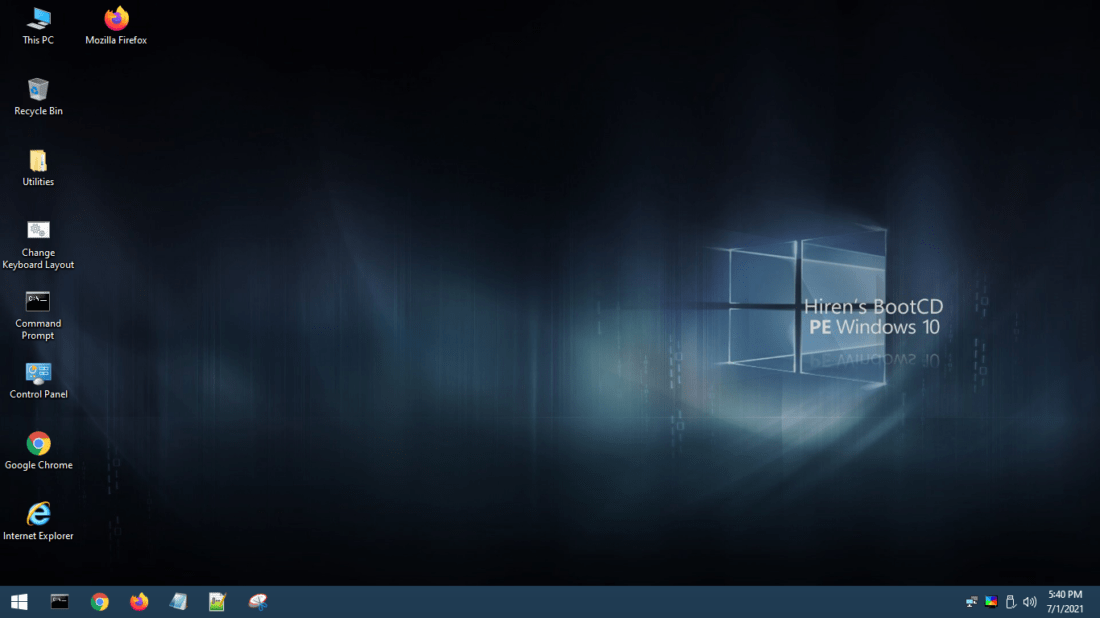
3- Trinity Rescue Kit
Trinity Rescue Kit is a Bootable USB Rescue System designed to help users troubleshoot and recover their computer systems. It is a free and open-source solution that offers a range of features and tools for various system-related tasks.
Primary features of Trinity Rescue Kit include:
- Virus scanning and removal: It provides antivirus tools to scan and clean infected systems, helping to eliminate malware and viruses.
- Password recovery: Trinity Rescue Kit allows users to reset passwords for Windows accounts, including administrator accounts, in case of forgotten passwords.
- Data recovery: It includes tools for recovering lost or deleted data from damaged or corrupted storage devices, such as hard drives or USB drives.
- Partition management: Trinity Rescue Kit offers utilities for disk partitioning, allowing users to create, delete, resize, or modify partitions on their storage devices.
- System repair and troubleshooting: It provides a range of tools for diagnosing and fixing system issues, such as disk errors, boot problems, or registry errors.
Pros of Trinity Rescue Kit:
- Free and open-source: Trinity Rescue Kit is available at no cost and provides access to its source code, allowing users to customize and modify it as needed.
- Comprehensive toolset: It offers a wide range of tools and utilities for various system-related tasks, providing users with flexibility and versatility.
- Active community support: Trinity Rescue Kit has an active user community that provides support, guidance, and updates, ensuring ongoing improvements and compatibility.
Cons of Trinity Rescue Kit:
- Command-line interface: Some tools and tasks in Trinity Rescue Kit may require the use of a command-line interface, which can be less user-friendly for individuals with limited technical expertise.
- Compatibility limitations: While Trinity Rescue Kit supports a variety of hardware and software configurations, there may be some systems or specific components that are not fully compatible.
- Learning curve: Due to the comprehensive nature of the toolset, there may be a learning curve involved in understanding and effectively utilizing all the features and tools offered by Trinity Rescue Kit.
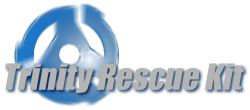
4- Rescapp
Rescapp, short for "Rescue Application," is a graphical user interface (GUI) frontend for the Trinity Rescue Kit (TRK). TRK is a Bootable USB Rescue System designed for troubleshooting and recovering computer systems. Rescapp provides an intuitive and user-friendly interface to access and utilize the various tools and features offered by TRK.
It simplifies the process of performing system diagnostics, virus scanning, data recovery, password resetting, and other system-related tasks. Rescapp is particularly helpful for individuals who prefer a graphical interface over a command-line interface when using TRK.
GNU/Linux options
- Change Gnu/Linux Password : Change a user's password
- File System Check (Forced Fix) : File System Check (Forced Fix)
- Easy GNU/Linux Boot Fix : Fsck partition, update grub menues, restore GRUB into the MBR and order UEFI entries
- Restore Grub : Restore GRUB into the MBR
- Regenerate sudoers file : Define a new sudoers file
- Update Grub Menus : Update GRUB Configuration File
UEFI Boot specific options
- UEFI Partition Status : Check UEFI partition status
- Check UEFI Boot : Check if Rescatux has boot in UEFI mode
- Create UEFI Boot Entry : Create a new UEFI Boot entry out of your EFI files
- Change UEFI Boot Order : Change UEFI Boot order
- Reinstall Microsoft Windows UEFI : Reinstall Microsoft Windows UEFI boot entries
- Fake Microsoft Windows UEFI : Fake Microsoft Windows UEFI boot entry
- Hide Microsoft Windows UEFI : Hide Microsoft Windows UEFI boot entry and define default fallback one.
Windows password and role related options
- Easy Windows Admin : Promote to Admin, Reset Windows (NT,200x,XP,Vista,Seven) password and unlock user
- Reset Windows password : Reset Windows (NT,200x,XP,Vista,Seven,10) password
- Promote Windows user to Admin : Promote Windows (NT,200x,XP,Vista,Seven,10) user to Administrator
- Unlock Windows user : Unlock Windows (NT,200x,XP,Vista,Seven,10) user
5- Exton|Defender Super Rescue System (SRS)
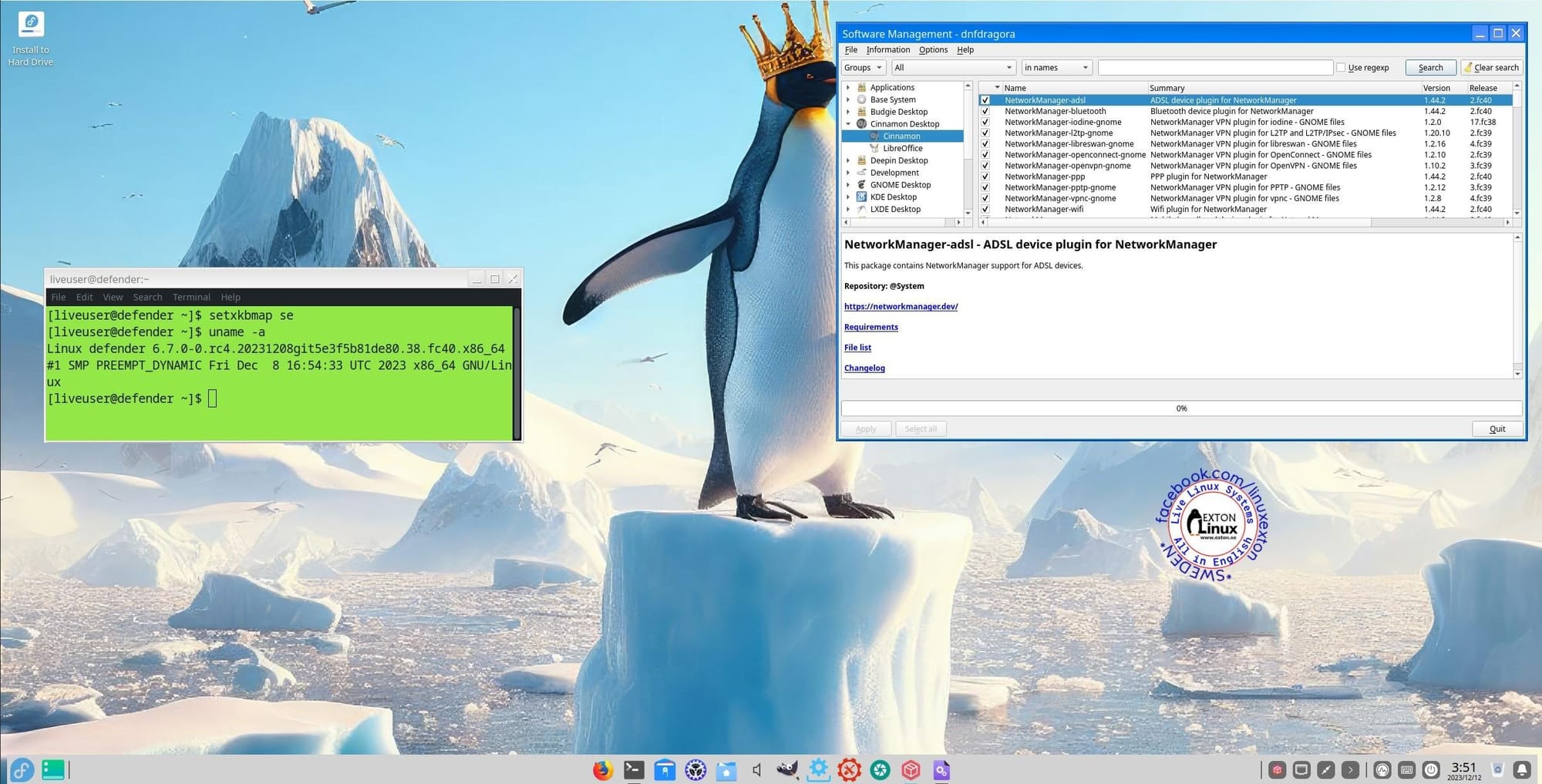
Exton|Defender SRS is a Linux system designed for system repair and data recovery. It offers various tools and desktop environments, and is available in two versions based on Rocky Linux 9.2 and Fedora "Rawhide". It also provides the option to create a customized ISO using Refracta Snapshot after a hard drive installation.
Pros of Exton|Defender SRS:
- Wide selection of tools: Exton|Defender SRS offers a range of tools and desktop environments for system repair and data recovery, providing users with flexibility and options.
- Based on Linux: It is built on Linux, which is known for its stability, security, and open-source nature.
- Customizable ISO: Exton|Defender SRS allows users to create a customized ISO using Refracta Snapshot, which can be beneficial for specific needs or preferences.
Cons of Exton|Defender SRS:
- Limited documentation and community support: Compared to some other Bootable USB Rescue Systems, Exton|Defender SRS may have limited official documentation and community support available.
- Potential compatibility issues: As with any Linux-based system, there may be compatibility issues with certain hardware configurations or software applications.
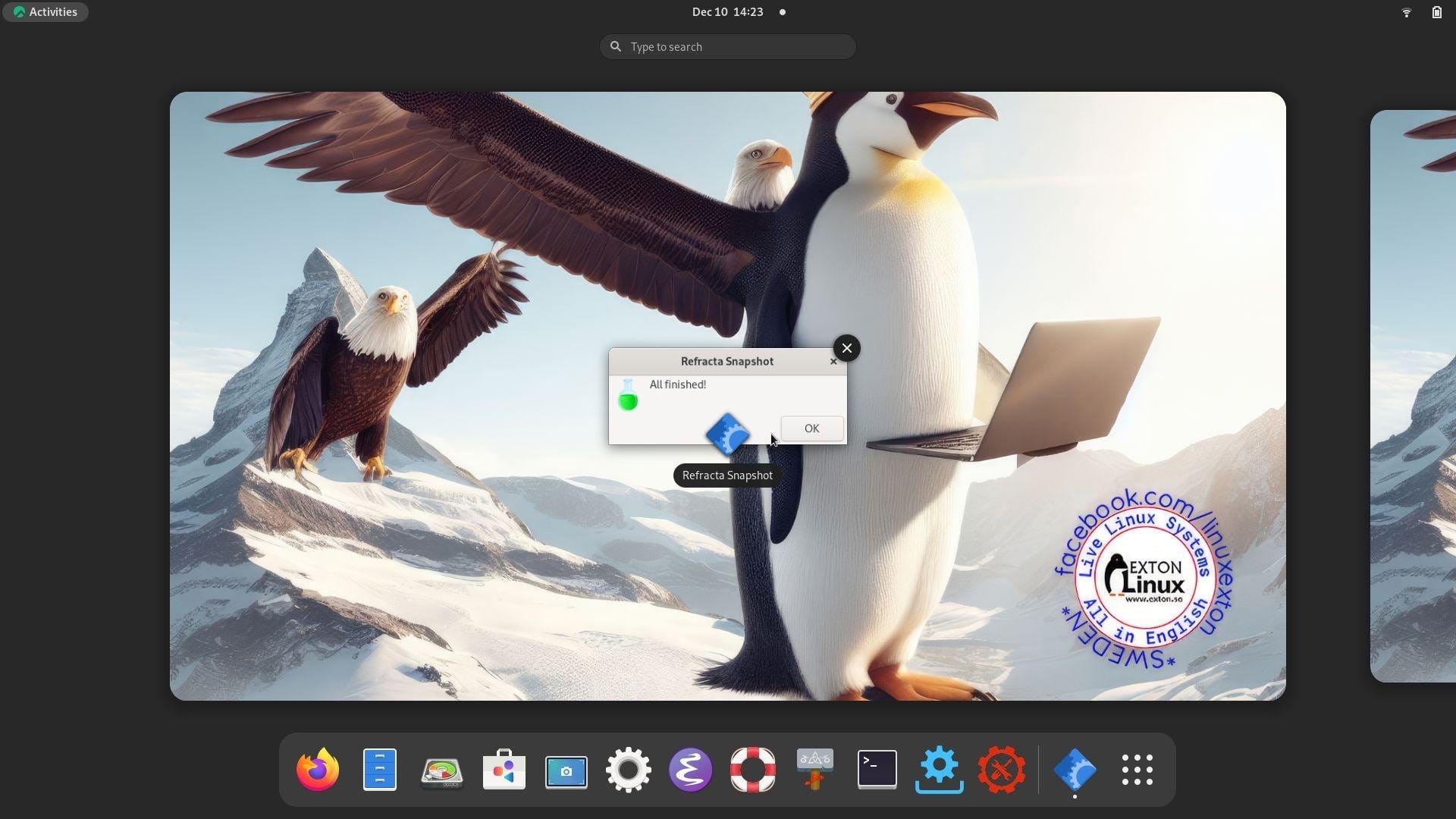
6- Rescatux
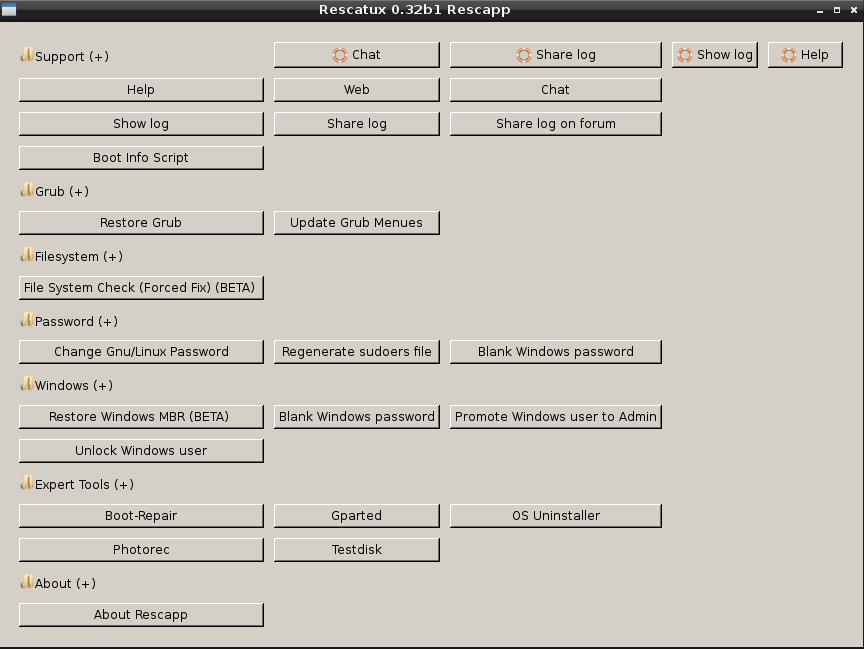
Rescatux is a unique GNU/Linux repair CD that comes with Rescapp, a wizard that guides users through rescue and repair tasks. It also offers additional support features such as live chat, log sharing for debugging, sharing logs on forums, and running Boot Info Script to share computer configuration.
Pros of Rescatux:
- Wizard-guided repair: Rescatux comes with Rescapp, a wizard that provides step-by-step guidance for rescue and repair tasks, making it easier for users, especially those with limited technical expertise.
- Additional support features: Rescatux offers live chat support, log sharing for debugging, and the ability to share logs on forums. These features can be helpful in troubleshooting and resolving complex issues.
- Boot Info Script: Rescatux includes the Boot Info Script, which provides detailed information about the computer's configuration. This can be useful for diagnosing and resolving boot-related problems.
Cons of Rescatux:
- Limited toolset: Compared to some other Bootable USB Rescue Systems, Rescatux may have a more limited range of tools and utilities available.
- Compatibility limitations: As with any Linux-based system, there may be compatibility issues with certain hardware configurations or software applications.
- User interface: Rescatux primarily relies on a command-line interface, which may be less user-friendly for individuals who prefer a graphical interface.
7- Refracta
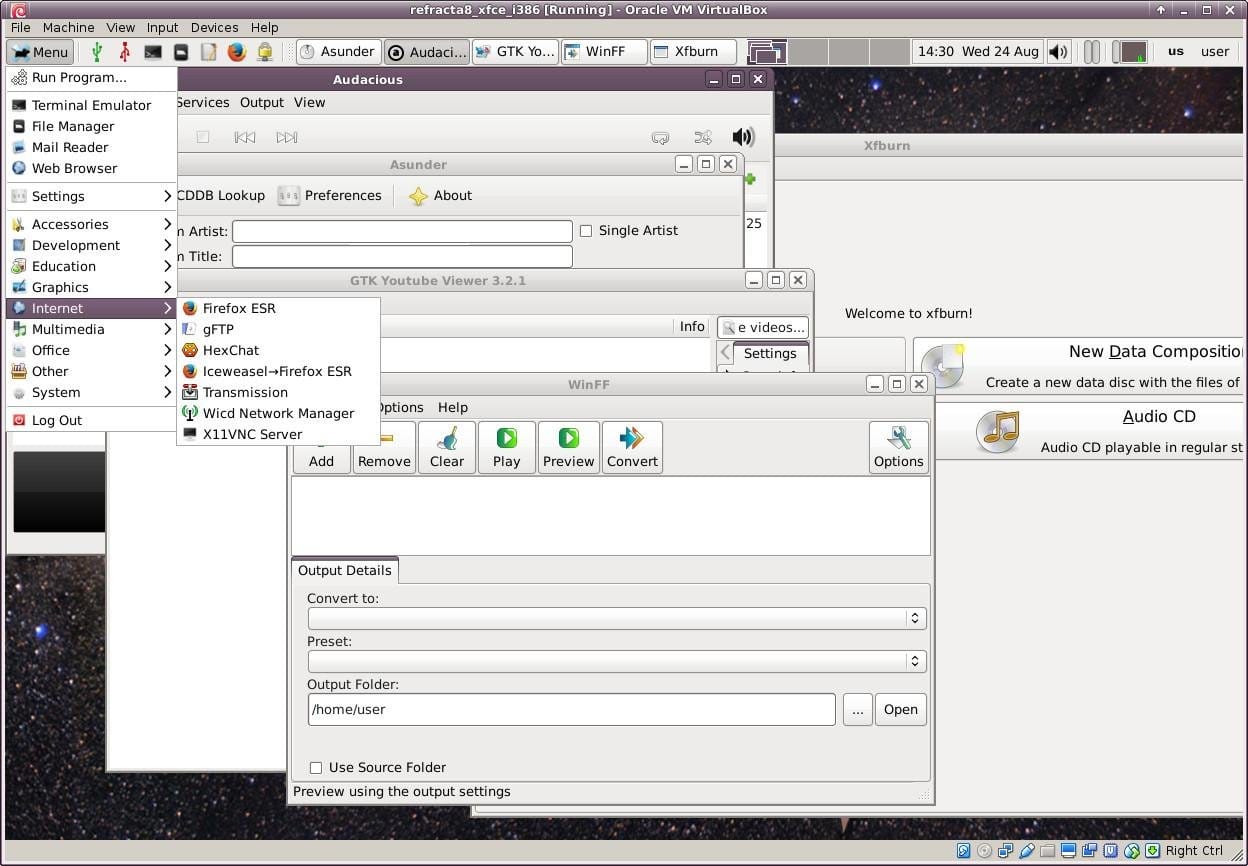
Refracta is an operating system designed for home computer users and system rescue. Refracta-8 is based on Devuan GNU/Linux and offers customization tools like refractainstaller, refractasnapshot, and refracta2usb for creating personalized installations and live media.
Pros of Refracta:
- Customization tools: Refracta provides tools like refractainstaller, refractasnapshot, and refracta2usb, allowing users to create personalized installations and live media.
- Based on Devuan GNU/Linux: Devuan is a Debian-based distribution known for its stability and focus on user control. Refracta inherits these qualities, making it a reliable choice.
- Designed for home users and system rescue: Refracta is specifically designed with the needs of home computer users and system rescue in mind, offering a user-friendly experience and helpful rescue tools.
- Active community: Refracta has an active user community that provides support, guidance, and updates, ensuring ongoing improvements and compatibility.
Cons of Refracta:
- Limited documentation: Compared to some other projects, Refracta may have limited official documentation available, which can make it challenging for users who require detailed instructions or troubleshooting guidance.
- Potential compatibility issues: As with any Linux-based system, there may be compatibility issues with certain hardware configurations or software applications. It is recommended to check hardware compatibility before using Refracta.
8- Rescuezilla The Swiss Army Knife of System Recovery
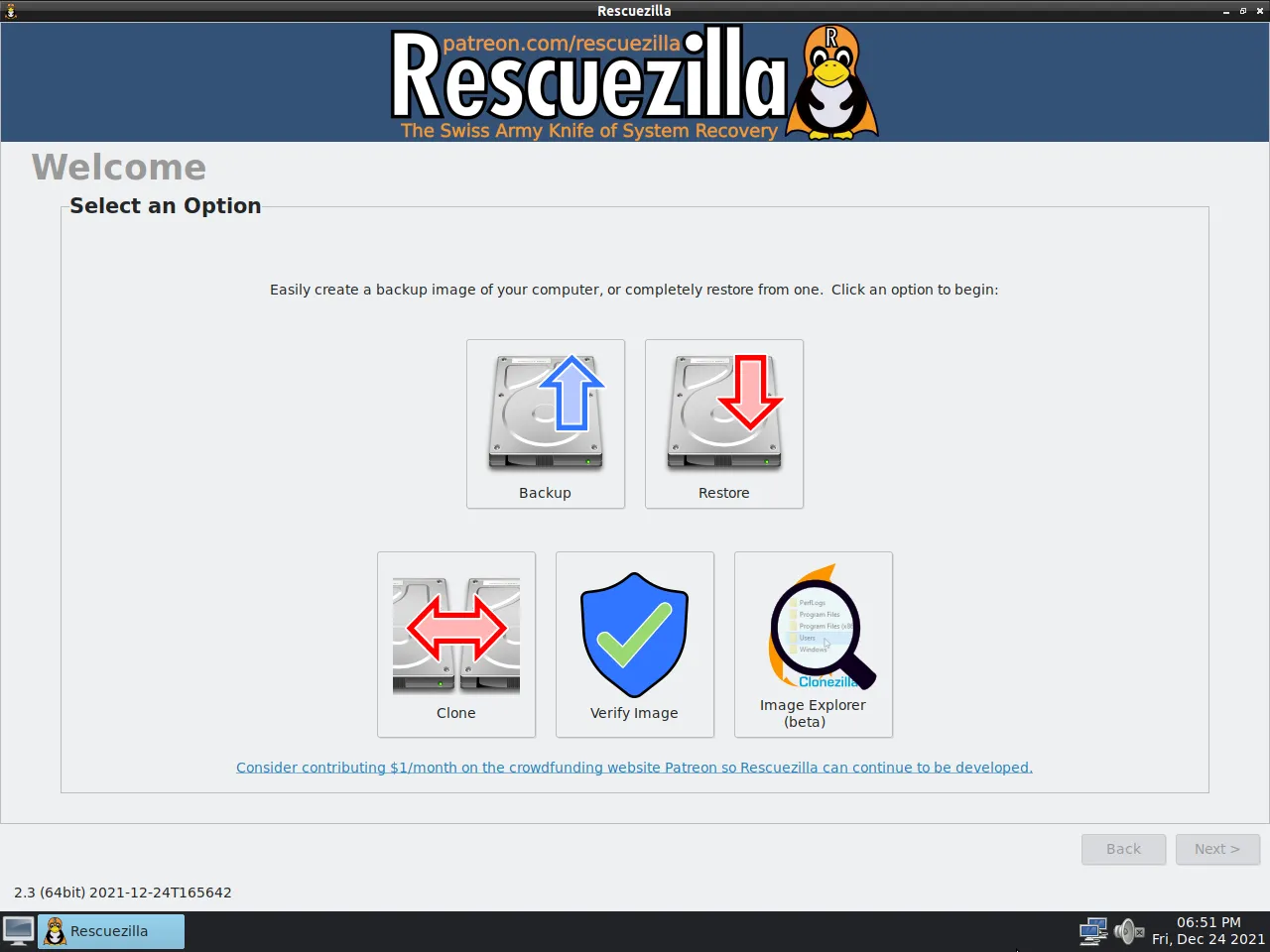
Rescuezilla is a free and open-source backup and disk imaging solution based on the popular Clonezilla software. It provides users with an easy-to-use interface for creating and restoring disk backups, making it a valuable tool for data protection and disaster recovery.
Features of Rescuezilla include:
- Disk and partition backup: It allows users to create full disk or partition backups, capturing all data and system settings for future restoration.
- Incremental backups: Rescuezilla supports incremental backups, which means that only the changes made since the last backup are stored, reducing storage requirements and backup time.
- Disk imaging: It enables users to create disk images, which are exact copies of the entire disk or specific partitions. These images can be stored on external storage devices for safekeeping.
- Disk cloning: Rescuezilla offers disk cloning functionality, allowing users to create exact replicas of a disk onto another disk, making it useful for migrating to a new hard drive or upgrading hardware.
- Easy restoration: Users can easily restore backups or disk images to the original disk or a new disk, ensuring a quick and efficient recovery process.
- Live system: Rescuezilla can be booted directly from a USB drive or CD/DVD, providing a standalone environment for backup and restoration tasks without the need to install any software.
Pros of Rescuezilla:
- User-friendly interface: Rescuezilla provides a straightforward and intuitive interface, making it accessible to users with varying levels of technical expertise.
- Comprehensive backup options: It offers various backup options, including full disk, partition, incremental backups, and disk cloning, catering to different backup needs.
- Open-source and free: Rescuezilla is an open-source software released under the GNU General Public License (GPL). It is freely available for personal and commercial use.
- Based on Clonezilla: Rescuezilla is built on the reliable and widely-used Clonezilla software, ensuring robust backup and restoration capabilities.
- Active community support: Rescuezilla benefits from an active user community that provides support, documentation, and updates, ensuring ongoing improvements and compatibility.
Cons of Rescuezilla:
- No file-level backups: Rescuezilla focuses on disk-level backups and disk imaging, so it does not provide the ability to back up individual files or folders separately.
- Command-line options: While Rescuezilla offers a user-friendly interface, some advanced customization options or specific use cases may require the use of command-line options, which may be less accessible for less technical users.
- Limited cloud integration: Rescuezilla does not have built-in support for cloud storage services, so users need to manually transfer backup files to cloud storage if desired.
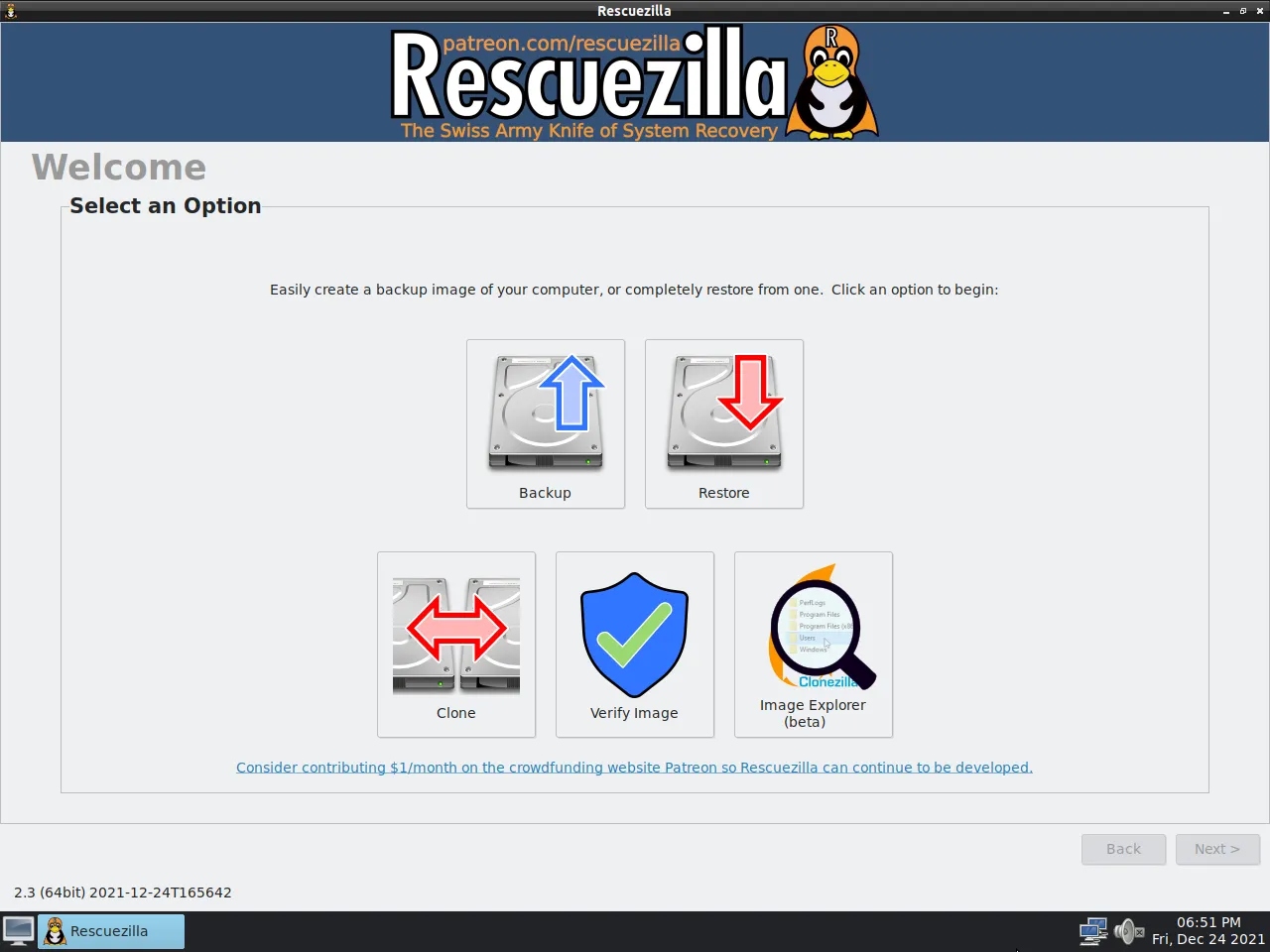
9- Quick-Save-Live Quick Safety and Rescue System
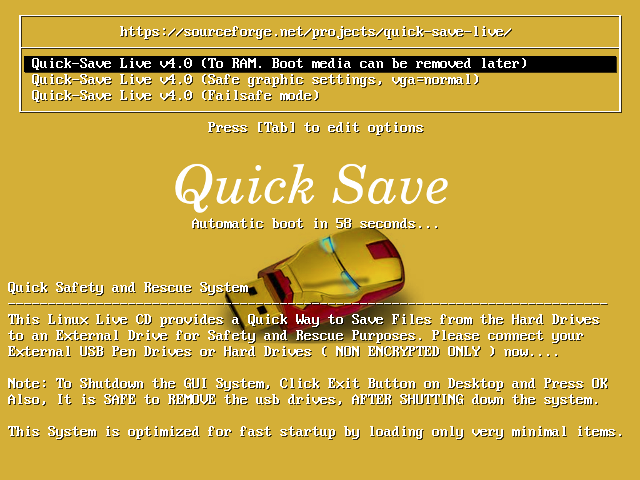
This Linux Live CD provides a quick and easy way to save files from hard drives to an external drive for safety and rescue purposes. It has a fast startup time, auto-mounts all drives (except encrypted ones), and offers a dual-pane file manager for easy file copying.
However, it does not support encrypted drives and copies files as root for ownership-aware filesystems. The system can be properly shut down by clicking the exit button on the desktop. It has a small size of 50 MB and is based on Tiny Core Linux for wider compatibility.
10- System Rescue USB
System Rescue USB is a modified Arch Linux live CD designed as a rescue tool. It can be customized and compiled easily. It boots into an LXDE desktop with an unprivileged user, supports sudo for root privileges, and uses fish as the default shell. The ISO can be burned to a CD/DVD using built-in tools in Windows 7 and later, or with third-party software for older versions of Windows.
11- BG-Rescue Linux
BG-Rescue Linux is a small Linux distribution designed for rescue purposes. It runs entirely in RAM and can be booted from USB or CD-ROM. It supports both BIOS and UEFI hardware, and includes a 64-bit kernel for chrooting into a 64-bit userspace.
It can be used for full system backup/restore, facilitating Debian or Ubuntu installation, and supports major filesystems, network cards, and network shares. It also includes disk and filesystem utilities, compression tools, and a graphical frontend.
The system runs entirely in ram and can be booted either from usb-stick or cdrom. It can be booted either on BIOS or UEFI hardware. Besides i386 it also includes a 64bit Linux kernel generating the possibility to chroot into a 64bit (amd64) userspace environment. The system can serve as a full rescue / backup / restore system for Linux or Windows based computers or to facilitate the installation of a recent Debian oder Ubuntu Linux via debootstrap.
All the relevant major filesystems and many network cards are supported as well as mounting samba (cifs) and nfs shares over network. A wide range of disk- and filesystem utilities as well as strong compression tools are integrated, including a 64bit version of lrzip. Encrypted disks including LUKS are supported and there is limited BitLocker support. A graphical frontend (ytree) is also included.
12- Ultimate Boot CD
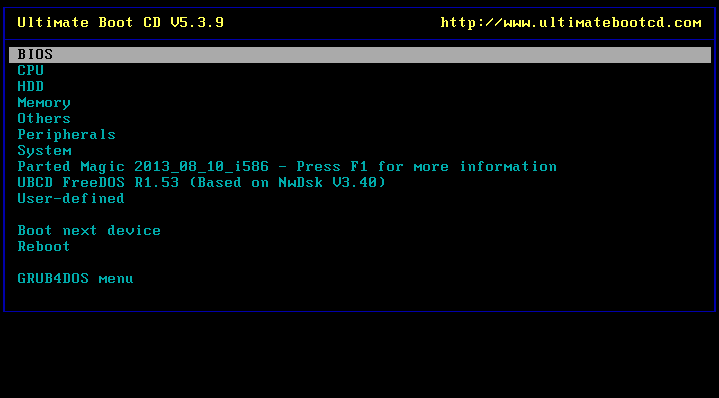
Ultimate Boot CD is a free or low-cost tool that allows you to run diagnostic tools from a CDROM drive, eliminating the need for a floppy drive. It consolidates multiple diagnostic tools into one bootable CD and can also be run from a USB memory stick.
The latest version includes new features such as the inclusion of Parted Magic and support for syslinux/isolinux and grub4dos.

13- Berry Linux
Berry Linux is a bootable CD Linux that offers automatic hardware detection. It can be used as a Linux demo, educational CD, or rescue system without the need for installation.
It is a lightweight and fast operating system with good design and usability. It can boot from various devices and has the ability to quickly start, recognize hardware, and connect to the Internet.
14- Pocket Rescue
Debian Bookworm is a 64-bit based system designed for repairing your computer. Pocket Rescue includes tools such as boot-repair, gparted, testdisk, photorec, grub-customizer, and more. It also comes with preinstalled GPU/Wi-Fi/sound drivers and Chrome.
After logging into your online account, you can copy recovered files to a persistence partition, external HDD, or cloud server. Flash the system using Balena Etcher, mkusb, or any other tool of your choice.
15- 4MLinux
4MLinux is a miniature Linux distribution that focuses on maintenance as a system rescue live CD, multimedia capabilities like playing video DVDs, miniserver functionality using the inetd daemon, and offering small Linux games for entertainment.

16- boot-repair-disk
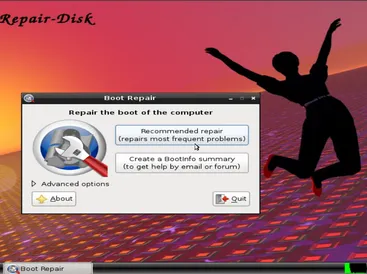
boot-repair-disk is a free rescue disk that includes the Boot Repair tool.
17- LinuxRCD (Linux Rescue CD)
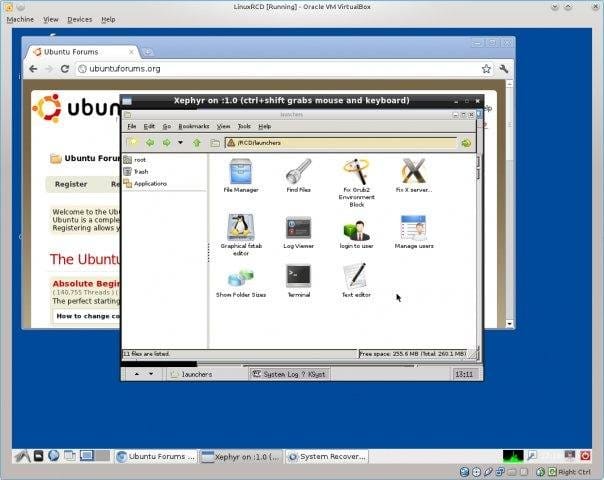
This Live Linux CD provides an easy-to-use graphical interface for configuring Linux systems that are no longer bootable. It automatically detects installed operating systems, allows you to select and connect to a Linux installation, and offers recovery utilities for repairing unbootable systems. This version is in beta.


